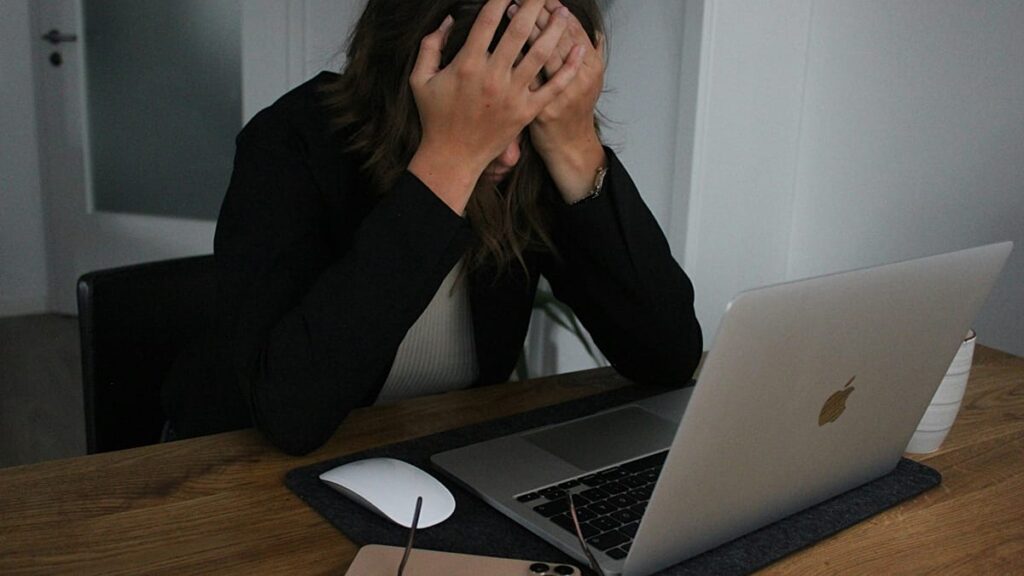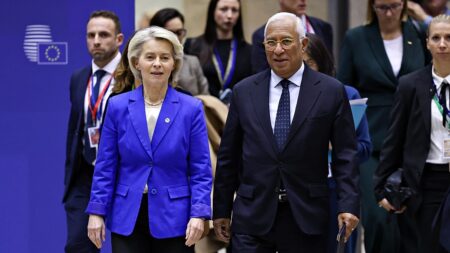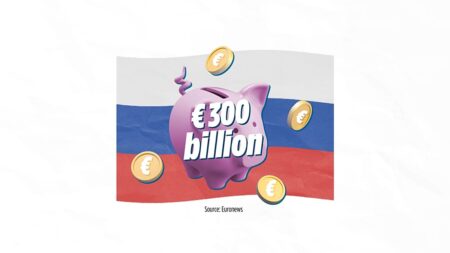Online hatred against women is rising and amplifying gender tensions in real life situations, the head of the United Nations division for women in Europe told Euronews as she warned about an increasingly hostile environment for young girls and women.
“Digital violence is real violence”, Belén Sanz, Director for UN Women for Europe and Central Asia, told Euronews. “Women and girls experience it, and it has tremendous consequences because it takes out the voice of women, their rights, and their choices”, she added.
74% of women in Europe have either experienced online violence themselves or witnessed it against another woman, according to a 2021 study by the Economist Intelligence Unit.
“It is critical that there is a regulation about the development and the use of artificial intelligence and digital technologies”, said Sanz, adding that it is also important to ensure that people, especially young boys and girls, can discern the information that they receive.
Among the most harmful formsof online abuse is deepfake pornography, which uses women’s faces to simulate sexual acts without consent.
Deepfake pornography accounts for approximately 98% of all deepfake videos online, with 99% of the targets being women, according to a 2023 report by cybersecurity firm Home Security Heroes.
In response, the UN’s yearly campaign“16 Days of Activism against Gender-Based Violence” will on ending digital violence against all women and girls. The campaign will be released worldwide on Tuesday.
“It is important that we understand as a society that this form of violence should not have impunity”, said the UN director Sanz.
The digital world is a mirror of reality
Sanz said online violence mirrors the physical and sexual violence women and girls face in everyday life in growing numbers.
One in three women in the EU has experienced some kind of physical or sexual violence in their lifetime, according to the European Institute for Gender Equality.
Between 2014 and 2024, the percentage of women aged 18-74 who have experienced some form of gender-based violence has not improved, declining by less than one percentage point in ten years (31.4% to 30.7%) and reflecting deeply rooted sexist behavior.
“It is very clear that there is not a linear progress, it needs a sustained effort and support from countries at all levels to ensure that the progress that we have seen during the last years in these areas does not go backwards,” Sanz said.
However, she warned of a recent backlash across society, both political and social, fueled by growing disinformation that directly affectsthe way society understands the progress of women.
“We are seeing younger generations of men questioning gender equality as if the needle has gone too far for women and as if that puts men in a risky situation,” Sanz said.
A 2025 survey of more than 24,000 people across 30 countries found that 57% of Gen Z men and 56% of millennial men felt their country had “gone too far in promoting women’s equality”. Gen Z refers to adults born between 1997 and 2012.
The UN director noted that this perception is not necessarily linked to actual progress but reflects broader societal challenges, including access to employment and economic instability.
Women in the public sphere face the most violence
Debates around gender equality policies and the role of women are also affecting women’s participation in public life.
Women’s representation in politics has slowly increased over the last decade. In the EU, women accounted for 33.4% of seats in national parliaments in 2024, up around nine percentage points since 2010.
However, women’s representation at the local level remains low and uneven, ranging from 25% to 43% depending on the country.
In addition to traditional barriers for women accessing politics, such as gender stereotypes around political roles and difficulties around work-life balance, women in public service roles experience disproportionate levels of violence.
“Women who face the greatest level of discrimination and attacks are those who have a public role,” said Sanz, adding that female politicians are much more scrutinised and held to higher standards compared to their male peers.
Around 32% of women in politics in Europe report experiencing violence – with nearly one in three facing cyberviolence, including threats, harassment and abuse on digital platforms, according to data from the Council of European Municipalities and Regions.
“A strong democracy is one where we have more women in decision-making positions”, Sanz argued. “To achieve that, we need to ensure they are protected, as everyone should be protected when they are exercising the right to participate in public life”.
Read the full article here














